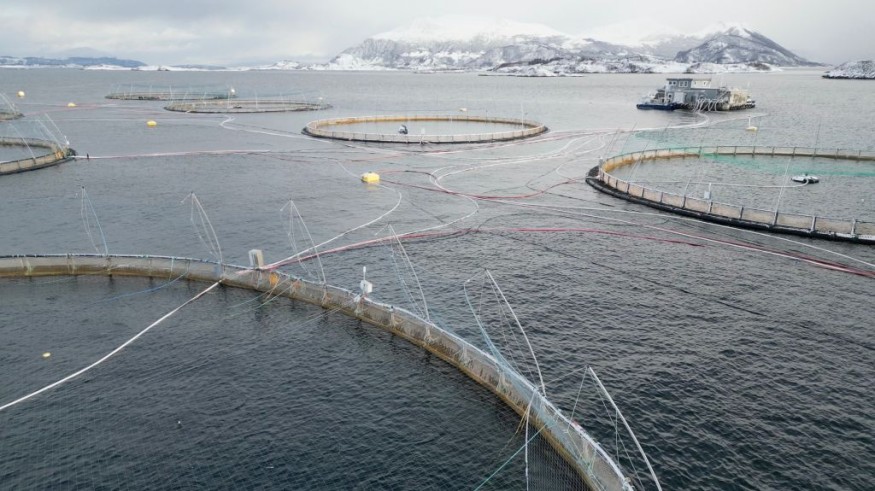The government of Canada has declared that it will ban open-net pen salmon farming in the coastal waters of British Columbia within five years, a move that was supported by environmental groups but rejected by the aquaculture sector.

Salmon Populations
In order to safeguard the diminishing wild Pacific salmon populations, the Liberal administration decided in 2019 to switch to closed containment technology.
On Canada's west coast, salmon is an important species both environmentally and culturally, but the Pacific Salmon Foundation reports that over half of the 9,000 different populations in British Columbia are in decline.
Numerous open-net salmon farms exist in the province, which activists claim have the potential to expose wild fish to disease and lice.
"Today, we are delivering on that promise and taking an important step in Canada's path towards salmon and environmental conservation, sustainable aquaculture production, and clean technology," said Jonathan Wilkinson, natural resources minister.
Since salmon spend the majority of their adult lives in the ocean after spawning in freshwater, closed containment operations are more expensive and difficult to run than farming salmon in open-net cages that float in the water.
Environmental activists claim that by dispersing disease, these salmon farms negatively impact wild salmon populations.
Stan Proboszcz, an analyst with the conservation organization Watershed Watch Salmon Society, stated that a substantial amount of research demonstrates how they intensify bacteria, viruses, and parasites directly on the wild salmon migration paths and transfer them to wild fish.
According to surveys, the majority of British Columbians are in favor of banning open-net salmon farming, but over 120 First Nations in the region are in favor of closed containment fish farms that are situated on land.
The declaration was well received by the First Nation Wild Salmon Alliance. According to its chairman, Bob Chamberlin, this date will meet the longer-term needs of shielding wild Pacific salmon from the effects of the open-net pen fish farm sector. It is a great move in that direction.
Economic Loss
According to the BC Salmon Farmers Association, salmon farming generates approximately C$1.5 billion ($1.09 billion) in revenue for the province each year and sustains 7,000 jobs in coastal towns.
According to Brian Kingzett, Executive Director of the organization, the 5-year timeframe required to completely replace traditional farming infrastructure presents obstacles for more investments in technology and innovations and will have a greater influence on the coastal towns that depend on our industry.
"The idea that 70,000 metric tons of BC salmon can be produced on land in five years is unrealistic and ignores the current capabilities of modern salmon farming technology, as it has not been done successfully to scale anywhere in the world," he added.
By the end of the month, the government promised to unveil a strategy detailing how it would assist communities that depend on open-net aquaculture for their livelihoods, First Nations, and industry workers.
Wilkinson stated that in order to make sure that the negative effects on the economy are minimized, they understand the significance of meaningful and careful engagement with First Nations partners and communities going forward.
Related Article : Salmon Population Feared To Be Devastated After Thousands Escape From Icelandic Farm
© 2026 NatureWorldNews.com All rights reserved. Do not reproduce without permission.





